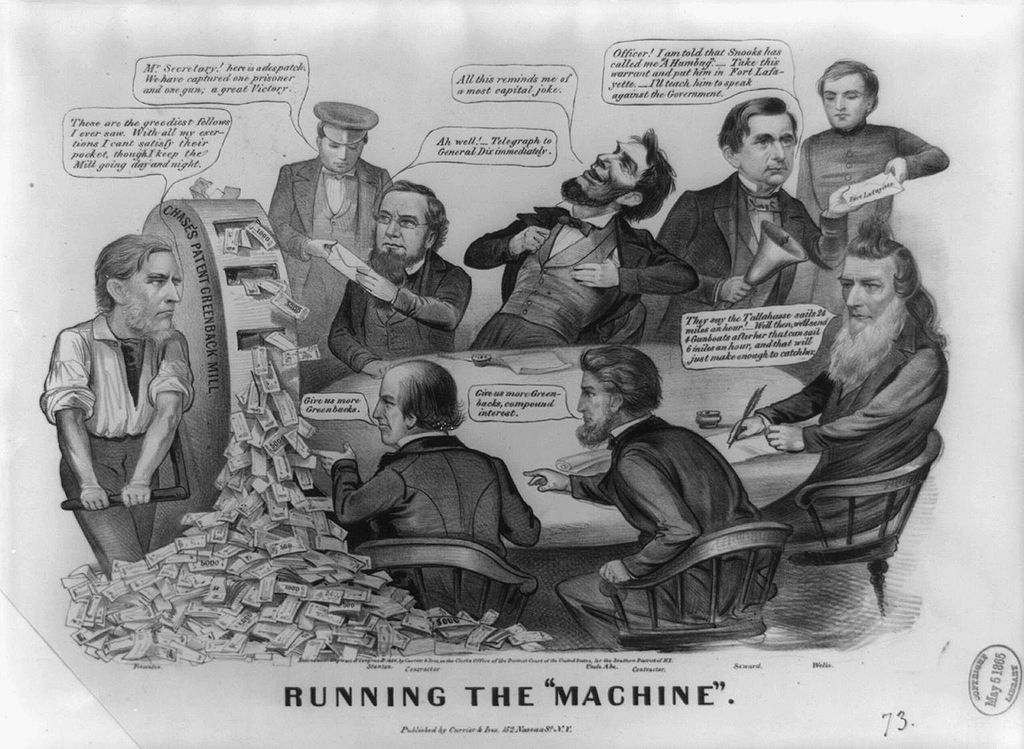Until
December of 1860 President James Buchanan seemed in accord with a State
sovereignty view of the fraternal Union, his message to Congress then
was that he condemned the exercise of secession, “but denied
emphatically the right of coercion” on the part of the federal agent.
But when Major Anderson seized an empty Fort Sumter, Buchanan refused to
order him back to Fort Moultrie and lit the slow fuse for war that
Lincoln would accelerate. Read more at: http://www.ncwbts150.com/RepublicanPartyCauseOfWar.php
Bernhard Thuersam, Chairman
North Carolina War Between the States Sesquicentennial Commission
"Unsurpassed Valor, Courage and Devotion to Liberty"
"The Official Website of the North Carolina WBTS Sesquicentennial"
Lincoln’s Auspicious Opportunity for Peace
“President
[Jefferson] Davis was at all times solicitous for peace, and adopted
every expedient of negotiation that could promote that end. Heartily
responding to the wishes of the Congress and people of the Confederacy,
he appointed, in February, an embassy to the Government at Washington.
The resolution of the Congress, asking that the embassy should be sent,
explains its object to be the “negotiating friendly relations between
that Government and the Confederate States of America, and for the
settlement of all questions of disagreement between the two governments
upon principles of right, justice, equity and good faith.”
Two of these commissioners, Messrs. Crawford and Forsyth, arrived in Washington on the 5th of March [1861] . . . [and] waited to the 12th of March before making an official presentation of their mission [to Secretary of State] Seward . . .
Here
begins a record of perfidy, the parallel of which is not to be found in
the history of the world. Mr. Seward, while declining to recognize the
Confederate commissioners officially, yet frequently held confidential
communication with them, by which the faith of the two Governments was
fully pledged to a line of policy, by what should certainly be the
strongest form of assurance – the personal honor of their
representatives.
In
verbal interviews, the commissioners were frequently assured of a
pacific policy by the Federal Government, that Fort Sumter would be
evacuated, that the status at Fort Pickens should not be changed, and
that no departure from these pacific intentions would be made without
due notice to the Confederate Government.
It
was alleged that formal negotiations with [the Confederate
commissioners], in an official capacity, would seriously jeopardize the
success of Mr. Lincoln’s manipulation of public sentiment at the North,
which, it was further confidentially alleged, he was sedulously
educating to concurrence with his own friendly purposes toward the
Confederates.
By
this cunning device and the unscrupulous employment of deception and
falsehood in his interviews with the commissioners, Mr. Seward
accomplished the double purpose of successful imposition upon the
credulity of the commissioners and evasion of official recognition of
the Confederate embassy.
In
the meantime . . . the Lincoln administration was secretly preparing
hostile measures, and, as was clearly demonstrated by subsequent
revelations, had never seriously entertained any of the propositions
submitted by the Confederate Government. Resolved not to evacuate Fort
Sumter, the Federal Government, while amusing the Confederate
commissioners with cunning dalliance, had for weeks been meditating the
feasibility of reinforcing it.
Never
had a Government so auspicious an opportunity to save the needless
effusion of blood, and to avert indefinitely, if not finally, the
calamity of war.”
(The Life of Jefferson Davis, Frank H. Alfriend, National Publishing Company, 1868, pp. 259-261)




